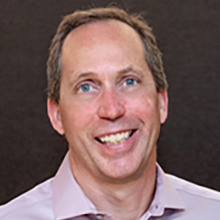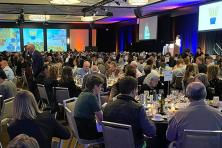Today is a day I was not sure was ever going to happen: after decades of inaction, our United States Senate just passed by far the most consequential federal climate policy in our nation’s history: the Inflation Reduction Act (IRA).
I’m sure that many of you shared my doubts. For far too long, the oil industry and other fossil fuel industry interests have used their dinosaur-sized influence to deny and then delay meaningful progress on federal climate action.
Now, the perseverance of the people, and dogged good work by many inside and outside “the Beltway” has translated into our elected officials doing the right thing for the public and planet.
In the coming days we and many others will provide additional details about what the bill will accomplish once our House of Representatives passes it and President Biden signs it into law; many experts have already outlined top takeaways.
The IRA will slash climate pollution and dramatically accelerate our shift to a clean energy economy. But we need to acknowledge that it also includes giveaways to the fossil fuel industry that's creating the crisis we're in, and would lead to new harms to communities on the front lines of environmental degradation—particularly in the Arctic and Gulf Coast.
Those private deals will directly impact Black, Indigenous and communities of color, and the work of Congress and others is not over—there are critical steps we must take quickly to address those impacts. We need to do more, and better.
This action by our Senate comes not a day too soon. When we look out our windows we see hot, withered landscapes. Others see the aftermath of flooding, or wildfire scars, or their own neighborhood choked too long by pollution. Some have lost the places they live. Many are just looking to survive.
The clean energy investments in this bill are an enormous step forward—game changing. And it was able to happen because we broke through a fog of political pollution and what seemed to be insurmountable, dino-sized roadblocks.
We already knew that, following recent bad decisions from the Supreme Court, there is more to do outside of D.C, and that remains true. We now have the opportunity to turn the promise of policies and investments into real progress on the ground—cutting more climate pollution, creating more good paying jobs, and investing in solutions in the hardest hit and historically disadvantaged communities that bear the brunt of environmental injustice. The real harms caused by global warming are coming faster and harder, and our climate action must not fail to keep up.
Now, we have more momentum. Let’s keep adding to it—and remember that things that seem impossible truly can happen with enough tenacity. Open a window, and maybe you’ll see some flying pigs. It’s about time.





